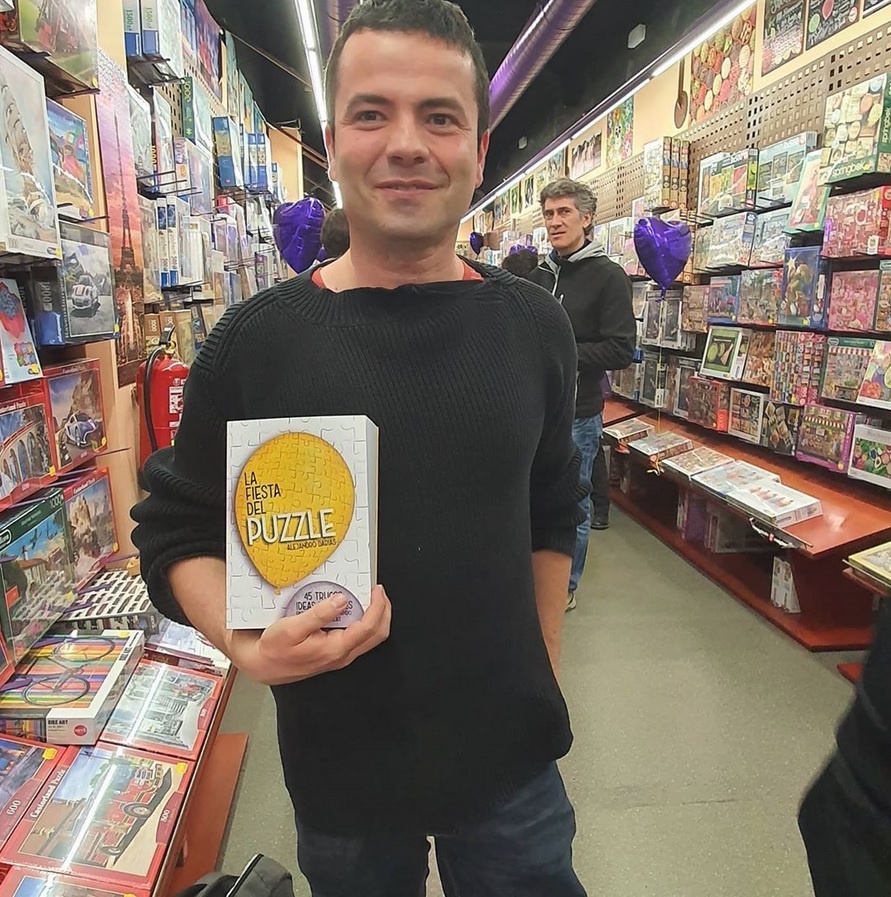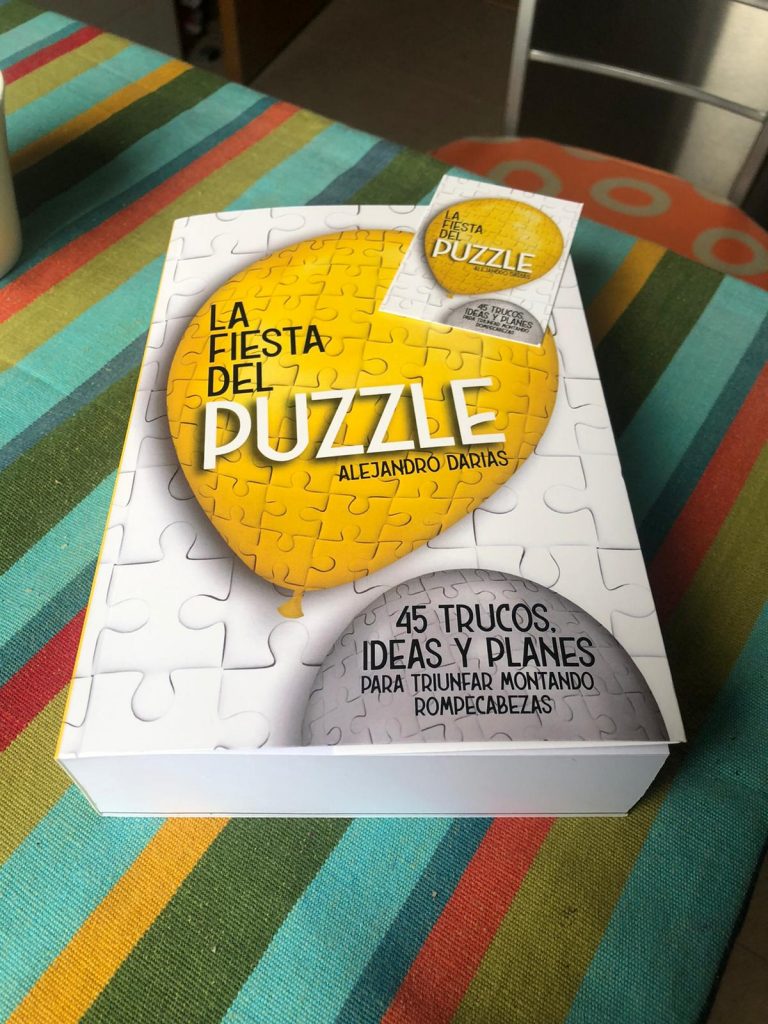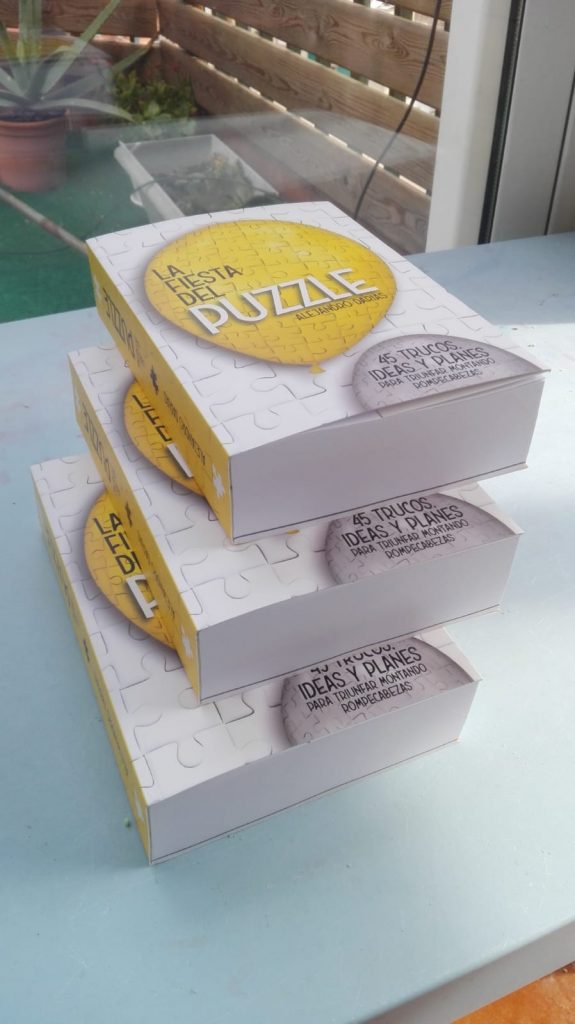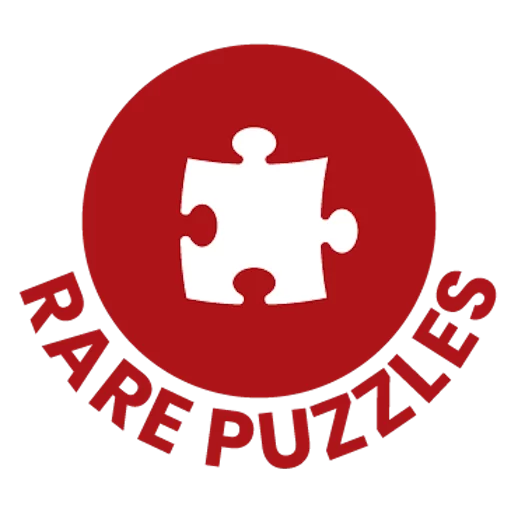Blog
La Fiesta del Puzzle, by Alejandro Darias
Many things were different before the Internet changed our lives. If you are over 50, you probably had to write your college essays on a typewriter. If you happened to like jigsaw puzzles, you probably didn’t know any real person around you with the same hobby. As a consequence, most puzzle fans were quite alone and unable to share their passion with anyone. In those times, the book La Fiesta del Puzzle would have been impossible.
Then the Internet was born, filling every vacuum of human interest. Several online forums about puzzles appeared in different countries and in different languages. These forums gathered the disperse puzzle population around online communities. They later formed legal associations, organized competitions, and published puzzle journals for their members. The puzzle world has bloomed in the last 15 years. It was about time that someone would put all that information together and tell us the story.
That’s exactly what Alejandro Darias Mateos has done. He has written and published La Fiesta del Puzzle (The Puzzle Party). It is a book about puzzles and about people that like puzzles. It is the only book in Spanish on this topic and one of the very few in any other language. This significant contribution would have been inconceivable just two decades ago and we were curious about it. Alejandro has been very kind by sharing with us his story and the genesis of his book.

Tell us about your passion for puzzles. How did it start and how did it evolve over the years?
I summarized it on my personal blog some time ago. I think it started through osmosis in my childhood, since my parents had quite a few puzzles at home. My first memory was a 220 piece puzzle by Educa, which I got as a gift. It was then that I experienced for the first time the challenge of a jigsaw puzzle. After that, I have had an intermittent relationship with puzzles. I assembled them regularly since I was 7 until I went to college. Then I put them aside almost completely, except for some 5000 piece puzzles during summer times. I also attempted to complete the 13200, Clementoni, Lahaina Visions when I started my work career. Finally, I retook them with full force again in 2015 after discovering the Spanish puzzle forum Puzzleando.
You also participate actively in many puzzle competitions. Why do you compete? What are those events like?
I have participated in 52 competitions since my debut in 1987, when I was just a child. Somehow I have been part of puzzle competitions from the moment they started in Spain. As a sportsman, I love competition and I love to compete. However, most importantly, these events are a great opportunity to network and meet like-minded people. Furthermore, championships are an excellent excuse to travel and visit new places, which I also love to do.
The atmosphere during competitions is of positive vibes and joy. It reminds me of meetings and gatherings of entrepreneurs who have abandoned the rat race. They share a common hope and the conviction that they are in the right place. People smile and don’t look at the watch. Somehow it is a bubble outside of the real world. I am lucky because I love my daily job and I am passionate about what I do. However, I see that a lot of people are very unhappy in their jobs. It is comforting to realize that people can be happy for a few hours doing something they love to do. People probably will have the same motives that I have to participate in these competition events. And yet, I think the most relevant one is meeting other people with the same passion.
My goal in a competition is always improving the results of the previous event. As a pending goal, I would like to finish under 1 hour at an official individual competition. That would take me to the top 5 ranking in Spain. In doubles, I would like to finish in the top 3 at the national championships. So far I have finished 5th, with Soraya Pérez Carayol. Also I would like to finish in the top 3 at the World championships.
We could have made it last year. However, the competition level was really out of the charts and we finished 7th. I still have to streamline movements and habits in order to improve some decisive minutes. I have some ideas and strategies, but I still need to apply them in competition. Apart from the results themselves, I think I can highlight in competitions the training of self-control and nerves. I think I’m quite cold in that regard.
How have puzzle competitions changed over time?
Puzzle championships have evolved a lot. Initially, there was not even a ranking, with the exception of the competition of Castejón since 1997, and the historic events organized by Puzzlemania between 1995 and 2003. Thanks to the efforts of some participants like Jesús Casellas López (president of the Spanish Puzzle Association between 2012 and 2018), it was possible to create a valid ranking. The Association introduced a digital system devised by Alfonso Álvarez-Ossorio which recorded a story that otherwise would have been lost. Nowadays competitions have even shows designed by communication experts and graphic designers who donate their time for our enjoyment. In 12 years the evolution has been absolutely remarkable.
You are a member of the Spanish Puzzle Association (AEPUZZ). What is the role of AEPUZZ and what is your contribution within its structure?
AEPUZZ was born in November 2012 and it has currently around 500 members. Before that, participants of the Internet forums Puzzleando and PuzzlesyPiezas were the ones organizing events and competitions. However, there were certain limitations and shortcomings due to the lack of a visible brand. There was a need to become a professional entity that would attract sponsorships and visibility on the media. AEPUZZ was the response to such a need.
AEPUZZ manages dozens of puzzle competitions. Sometimes entirely, sometimes providing digital support. They help promote puzzles with a visible brand. They were decisive to bring together within a common tribe a lot of puzzle fans who were dispersed and lost. I am a board member and representative of the Association in Catalonia. I am also currently the director of their magazine. My job is to coordinate all the contents, design editorial strategies, contact contributors and write content. I even work on text correction as needed. The more people participate in its creation, the better.
How did you come up with the idea of writing a book about puzzles? What were your goals and your challenges?
I came up with the idea for La Fiesta del Puzzle in the summer of 2016. I was looking for bibliography about puzzles and I couldn’t find anything. So, I asked Fernando Álvarez-Ossorio, who is the person that knows more about puzzles in Spain. He provided a list of around 20 references, most of them in English, German, and Dutch, as well as some puzzle catalogs and museum brochures. There was nothing in Spanish.
I had written short stories before. For some time I had wanted to write something outside of my comfort zone. And then I realized I had found the topic. Besides, I would be a pioneer, so I couldn’t ask for anything else.

La Fiesta del Puzzle began as some kind of “For Dummies” manual. Very soon the 300 pages started to multiply like a hydra. There were many contributions from other puzzle fans and people with different roles in the puzzle landscape. Initially, I had planned to limit such contributions to just one chapter. Later, I decided to extend them dynamically to the whole book. That was the best decision and the magical touch of the book.
More than 100 people live together along the pages of La Fiesta del Puzzle. In the first part of the book I write about how-tos for domestic assembly of puzzles. The second part is mainly about tricks and suggestions for assembly at competitions. In the third part, I provide a guide for all puzzle events in Spain and the 24 Hours of Hannut. It also includes information about collecting, puzzle entrepreneurship, or my vision of the future within the puzzle world.
The biggest challenge was finding the balance of a huge amount of information within a coherent text that would also include passion and humor. In fact, there was a time when I had to cut back and reduce material that has been left out. There is a lot of interesting content that will be published in a future book… at least.
Luckily, I didn’t find problems to publish La Fiesta del Puzzle because I decided to self publish. That meant I had to learn from scratch all the technical processes, like design, impression, layout, correction… Particularly, correction drove me mad. I had to re-read the book almost 10 times during the writing process. Half of them it was to make corrections and amendments. I was lucky to have the assistance of my friend Felipe Ortín. He is a writer and provided the contacts of the people that helped him to self publish his novels.
How was the reception of La Fiesta del Puzzle?
The book has been available for sale since February 12 to March 13, 2020. That was the date when the state of alarm was declared in Spain and the country went into lockdown due to the Covid-19 health crisis. During that month the reception was excellent. The book was distributed to six specialized stores in Barcelona, Madrid, Valladolid, La Coruña, Abrera, and Andorra. Also, the Architects Association (I am an architect by profession) has shown interest in the book. The first edition of the book has sold during that month. I’m sure future editions will sell as soon as we go back to our normal lives.
I might not be the right person to recommend my own book. However, I do believe it is a great contribution to the puzzle world. It is a book for any puzzle fan, but also interesting and attractive for people that are not into puzzles. The book collects an endless list of how-tos and puzzle activities. It also tells a lot of stories about puzzle people of every kind. It even deepens into topics related to personal growth. La Fiesta del Puzzle is a book written with passion.
As one of the people that now knows more about puzzles in Spain, how would you describe the health of the puzzle world in our country?
There are people that know much more about puzzles than me. It was precisely thanks to those people that La fiesta del Puzzle has been possible. My accomplishment was putting together a literary puzzle formed with thousands of pieces and without a previous image to use as a reference. Puzzles go always through cycles and ups and downs, like Anne Williams says in her book The Jigsaw Puzzle. Difficult times see an increase in the hobby, like the Crack of 1929 or the Covid-19 crisis these days. However, I think we have an advantage right now, because the “social” puzzle, which has been present during the last 30 years, will keep the tide up after the health crisis wears off.
I also think that the puzzle community will tend to a circuit of homologated competitions, with world rankings and large cash prizes. I don’t know whether it will happen in ten years, or in twenty, or in fifty, but it will happen. I’m sure about it.
After this contribution, what new projects do you have in store with regards to puzzles?

I am currently writing the sequel to La Fiesta del Puzzle, since all the events related to sales and presentations were cancelled due to the Covid-19 crisis. I hope this second book will not require three years and a half, like the first one. Also, I hope to be able to retake the puzzle traveler project that was left in stand-by and aroused a lot of curiosity among puzzle fans in Spain.
A while ago I started a YouTube channel where I share how-tos and I put together puzzles with live presentations. My plan is to keep it active including reviews about puzzle events. Similarly, on April 23 I had an online meeting with puzzle fans through Facebook. It was a very interesting experience that I would like to hold periodically, although I don’t know how or how often.
In the meantime, I am working on the 9000 piece version by Educa of The Garden of Earthly Delights. When I finish it in a few months, I will start the 10000 piece version of The Surrender of Breda. That way I will be able to enjoy my dear large puzzles, where I find the true motivation.
Finally, I will keep organizing the puzzle competition of Viladecans. This event would have seen its 4th edition this year had the Covid-19 crisis not disrupted it.
Thank you
We would like to thank Alejandro for his accessibility and kindness the very moment we reached out to him, and for taking the time to respond to our questions. We hope the reception of the book will reflect the effort and passion that he put while writing it. And we expect he will keep contributing to the puzzle community in the coming years.
Thank you, Alejandro.
You can find more information about La Fiesta del Puzzle here, and you will be able to order a copy directly from the author at [email protected].
